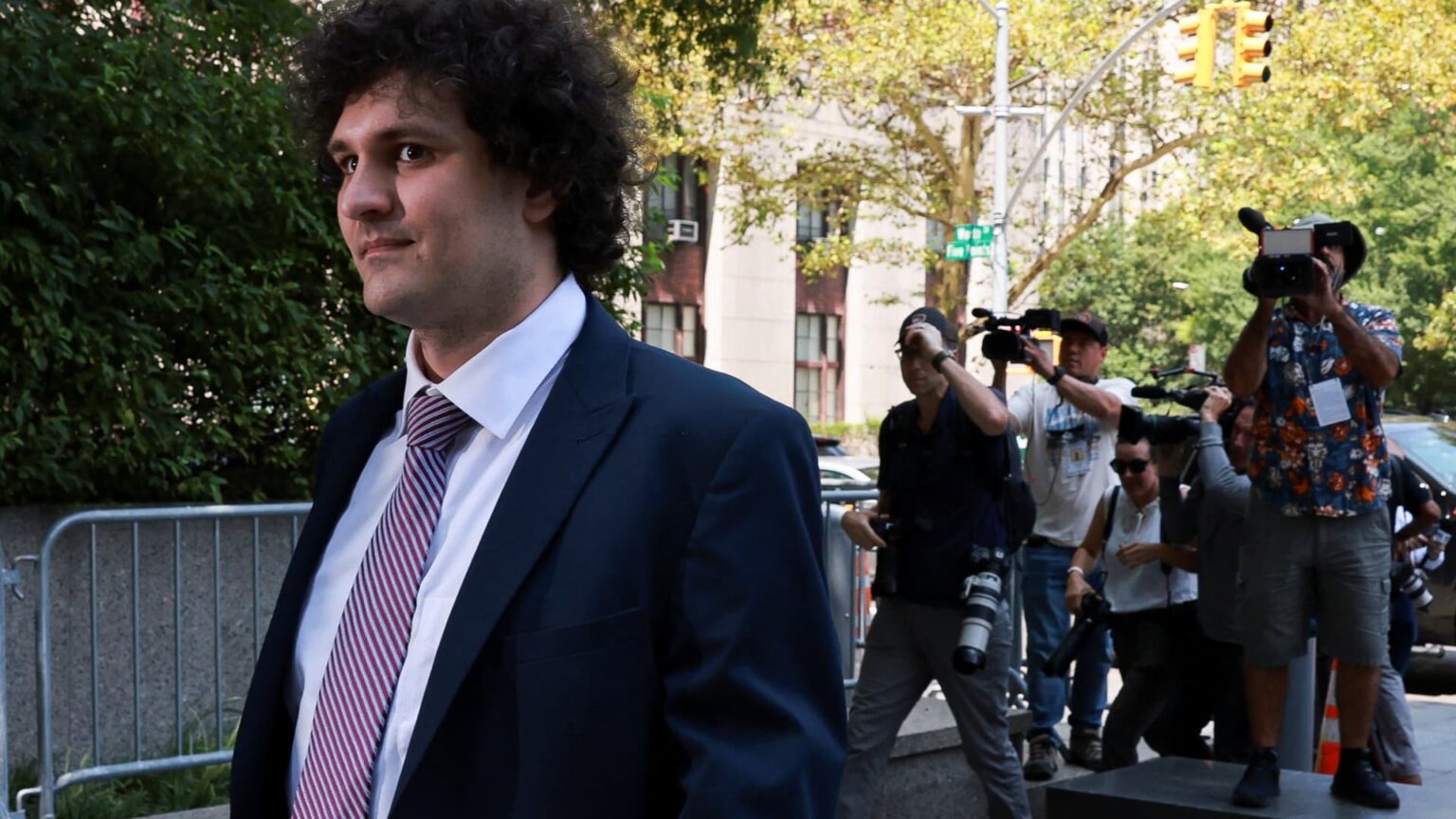Twelve jurors in a lower Manhattan courtroom have begun to deliberate the fate of FTX founder Sam Bankman-Fried following a month of testimony from nearly 20 witnesses.
The case was handed to the jury around 3:15 p.m. on Thursday, after U.S. District Judge Lewis Kaplan finished reading aloud 60 pages worth of instructions. A verdict could come as early as Thursday afternoon, and Judge Kaplan previously ordered the jury to stay until 8:15 p.m, offering free pizza and Uber rides home.
Bankman-Fried, who started digital asset exchange FTX in 2019, and sister hedge fund Alameda Research two years earlier, is charged with seven counts, including wire fraud, securities fraud and money laundering, related to the implosion of his crypto empire late last year.
He faces more than 100 years in prison if convicted. The 31-year-old graduate of Massachusetts Institute of Technology and son of two Stanford legal scholars has pleaded not guilty to all charges.
In order for Bankman-Fried to be found guilty, the jury must unanimously decide beyond a reasonable doubt that the entrepreneur, once hailed as a crypto genius, intended to defraud investors and customers.
The trial, initially anticipated to run until the Thanksgiving holiday, has moved swiftly. The government curtailed its witness list, and ultimately didn’t bring a rebuttal case after the defense rested. The defense called only three witnesses to the stand, with the bulk of its argument relying on the sworn testimony of the defendant.
Both sides have also moved more quickly than expected on direct and cross-examinations.
Judge Kaplan has encouraged the expedited timeline, holding jurors until 6:30 p.m. on Wednesday in order to finish closing arguments. It’s unclear how long the jury will deliberate, but the judge — while emphasizing that he’s not rushing a decision — said he’s willing to stay until 8:15 p.m. Thursday and told jurors the government would cover dinner and likely pay for their ride home.
Mark Cohen, Bankman-Fried’s defense attorney, made his final plea for his client on Wednesday, arguing that the defendant should be found not guilty on all counts, in part because the FTX founder had acted in good faith and without criminal intent, believing everything would work out.
“Every movie needs a villain,” Cohen said of the prosecution’s case against Bankman-Fried, adding that the government had incorrectly portrayed him as a “monster,” a “bad guy,” and a “criminal mastermind.”
Cohen claimed the case against his client was built on the false premise that FTX was a fraudulent enterprise established to intentionally steal customer funds from its “very earliest days.”
While FTX’s lack of a risk management system or chief risk officer reflected poor system controls, bad business decisions aren’t crimes, Cohen said.
Cohen told the jury that if any members of Bankman-Fried’s inner circle truly thought something nefarious was happening, they had options, including resigning, leaving the Bahamas or “blowing the whistle.” None of them did, he said.
‘Meant to reduce his role’
The defense’s chief witness was Bankman-Fried himself, and most of his testimony amounted to a distraction, Renato Mariotti, a former prosecutor in the U.S. Justice Department’s Securities and Commodities Fraud Section, told CNBC earlier this week. As an example, he cited Bankman-Fried’s blaming of Caroline Ellison, his ex-girlfriend and former head of Alameda, for failing to properly hedge.
His testimony was “meant to reduce his role, like his frequent reminders that others were involved, that he had a lot on his plate, that he was young, or that he wasn’t a programmer,” said Mariotti, who’s now a trial partner in Chicago with Bryan Cave Leighton Paisner.
During the government’s closing arguments, prosecutors reminded jurors of the mountain of evidence key witnesses had provided.
“The defendant schemed and lied to get money, which he spent,” Assistant U.S. Attorney Nicolas Roos told the court.
Roos said there’s “no serious dispute” that $10 billion in customer money that was sitting in FTX’s crypto exchange went missing, with some of it going to pay for real estate, investments, loan repayments and political donations.
“A pyramid of deceit was built by the defendant,” Roos said. “That ultimately collapsed.”
Critical to the failure of FTX was the use of customer funds to cover losses in Alameda’s books following the plunge in crypto prices last year. Roos said Bankman-Fried is the one who gave special privileges to Alameda, allowing the hedge fund to siphon customer money. He knew it was wrong, Roos said, which is why he kept it secretive.
Roos brought up testimony from three firsthand witnesses who said that they’d spoken with Bankman-Fried about the chief issue — a giant hole in the balance sheet.
Bankman-Fried “had the arrogance to think he could get away with it,” Roos said.
Bankman-Fried knew Alameda had a negative net asset value of $2.7 billion, Roos said, but wanted to make another $3 billion in venture investments. The only way to do that was with FTX customer funds, he said.
Additionally, Roos told the jury, client money went to $100 million in real estate expenses, including a $30 million penthouse in the Bahamas and $16 million for his parents’ home.
In referencing the Super Bowl picture with Katy Perry and others, Roos called Bankman-Fried a “celebrity chaser.”
In closing, the prosecution reminded the court that Bankman-Fried directed losses to be shifted to Alameda and that FTX’s insurance fund had made up numbers. Add it all up, Roos said, and it debunks the defense’s main argument that Bankman-Fried acted in good faith and believed everything would work out.
“This was a fraud that occurred on a massive scale,” he said.
WATCH: Sam Bankman-Fried set to testify
Read the full article here

